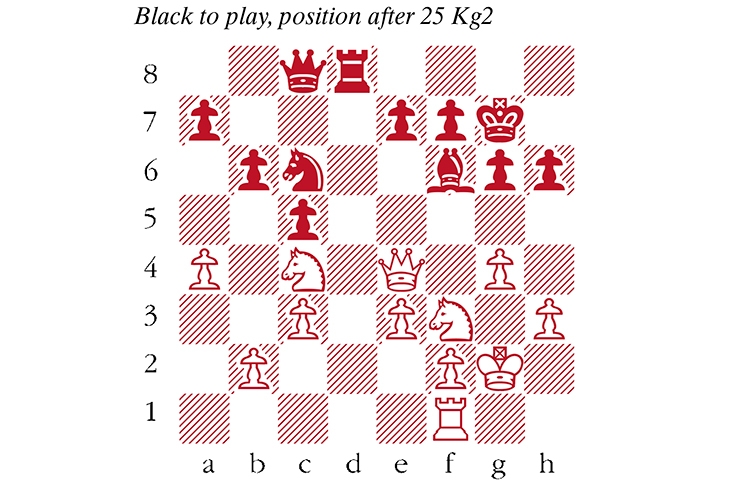‘I am extraordinarily patient — provided I get my own way in the end’. That’s a disposition fit for a chess player, even if it was Margaret Thatcher who said it. Learning when, and how, to mark time is an essential practical skill, so the classic text Endgame Strategy by Shereshevsky dedicates a whole chapter to the motto ‘Do not hurry’. When I won a 163-move, 7.5-hour game against Nigel Short in 2009, I did feel I had got the hang of it.
But it’s so much easier to exercise patience when you have plenty of time, like I did. (Thatcher had it easy too — she was locked in some glacial negotiation with the EEC.) How much harder it is to restrain the impulses amid the hurly-burly of a blitz game. When fresh tactics bubble up every few seconds, it’s so tempting to hitch yourself to some quixotic stratagem, to see where it takes you. The best blitz players seem able to remain steadfast, just as a helicopter can hover motionless, amid the din. They ignore the half-baked ideas, and wait for something better.
A perfect example was the game below, from the Abu Dhabi Super Blitz Challenge, which was held last month on the Chess.com website. Vladislav Artemiev, from Russia, won the $5,000 first prize in a tournament with more than 1,200 titled players, of whom 300 were grandmasters.
His opening was nondescript, and around move 20 Black’s position was entirely comfortable. With the exchange of bishop for knight on move 23, Artemiev forestalls any activity and carries on playing solid moves, without airs. On move 27, his proposal to exchange queens is rejected, but no matter. More shuffling, and later the rooks come off instead. By move 43, Black has drifted into serious trouble. The time is right for Artemiev to force a queen exchange, as his king has a clear path forward to attack the queenside pawns, though in the end it’s the e-pawn which decides. A clean positional game, and remember this was played at 3 minutes plus 1 second per move!
Vladislav Artemiev (Sibelephant)–Ian Nepomniachtchi (lachesisQ)
Abu Dhabi Super Blitz, chess.com
1 d4 Nf6 2 Nf3 g6 3 Bg5 Bg7 4 Nbd2 O-O 5 e3 d6 6 Bc4 c5 7 c3 Qc7 8 O-O Nc6 9 dxc5 dxc5 10 Qe2 Nh5 11 Rad1 b6 12 Bh4 Bb7 13 Ba6 Rad8 14 Bxb7 Qxb7 15 Nb3 h6 16 Qc4 Rd7 17 Rd2 Rxd2 18 Nbxd2 Rd8 19 g4 Nf6 20 h3 Nd7 21 Qe4 Qc8 22 a4 Nf6 23 Bxf6 Bxf6 24 Nc4 Kg7 25 Kg2 (see diagram) Qc7 26 h4 Kg8 27 Qf4 Qd7 28 Qe4 Bg7 29 g5 h5 30 Rc1 e6 31 Kf1 Qc7 32 Ke2 Ne7 33 Rd1 Rxd1 34 Kxd1 Qd7+ 35 Ncd2 Nf5 36 Ke2 Kh7 37 Qc4 Nd6 38 Qd3 Qc6 39 Nc4 Nf5 40 e4 Ne7 41 b3 Qc7 42 Ke3 Kg8 43 Qd6 Qxd6 44 Nxd6 Bxc3 45 Nb5 Bb2 46 Nxa17 f6 47 gxf6 Bxf6 48 Kd3 Bb2 49 Kc4 e5 50 Kb5 Bd4 51 Nc6 Nxc6 52 Kxc6 Bxf2 53 Nxe5 Bxh4 54 Nxg6 Bf2 55 Nf4 h4 56 e5 Be3 57 e6 A nice finishing touch, as 57…Bxf4 58 e7 Kf7 59 Kd7 forces the pawn through. Black resigns
For the various online chess platforms, lockdown is an unexpected boon. Chess in Schools and Communities, the UK charity,
has teamed up with ChessKid (which is part of Chess.com), in a campaign to get a million children playing chess in the UK. ChessKid is an online playing and learning zone designed for ages five to 11, and no knowledge of the rules is needed to get started. The site is offering free Gold Memberships, valid until 20 July, to all UK primary school pupils. Visit chessinschools.co.uk to register.






Comments